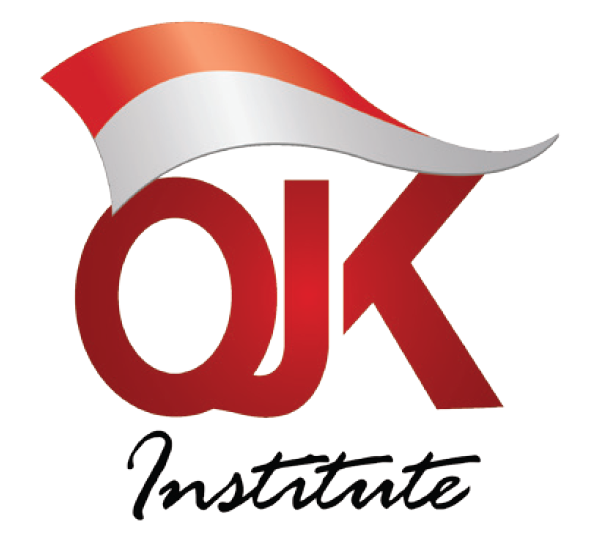The Role of the Financial Services Industry in Supporting MSME Inclusion and Digitalization
- 8 November 2022
- Lintas Sektor
- Online

Teaser
Background
Based on data from the Ministry of Cooperatives and Small and Medium Enterprises (Kemenkop UKM) as of March 2021, the number of MSMEs has reached 64.2 million with a contribution to the Gross Domestic Product (GDP) of 61.07 percent or IDR 8,573.89 trillion. MSMEs also contribute as a driving force for the regional economy in carrying out productive business activities and absorbing labor thereby increasing the income of the local community.
The government through the Ministry of Cooperatives and SMEs, has set several targets for the development of national SMEs going forward, including the number of SMEs on digital boarding targeted to be 24 million in 2023 and 30 million in 2024. In addition, the number of modern digital-based cooperatives is targeted to be 400 units in 2023 and 500 units in 2024. In addition, it is targeted that as many as 1 million MSMEs have been on boarding entered into the e-catalog of the Government Goods/Services Procurement Policy Agency (LKPP).
At the Inauguration of the Opening of the National Coordination Meeting on Digital Transformation and Complete Data Collection on Cooperatives and MSMEs in 2022, virtually from the State Palace, DKI Jakarta Province, March 28 2022, Indonesian President Joko Widodo (Jokowi) targeted as many as 20 million MSMEs to enter or on board lokapasar or marketplace in 2022. The President also stated that digitization has become a solution for MSME and cooperative business actors to survive, grow, and develop amidst a difficult situation. Currently, there are 17.5 million MSME actors who have entered the digital ecosystem, so this number still needs to be increased.
One strategy that can be implemented to develop MSMEs is through increasing access to finance. The MSME segment credit portion for most banks in Indonesia is still very low compared to the total loans disbursed. Based on data from Bank Indonesia (BI), the MSME loan portfolio as of August 2022 only reached IDR 1,214 trillion or around 19.7% of the total bank loans which reached IDR 6,155 trillion. Several government policies include increasing the MSME loan portion by 20% in 2022 and gradually increasing it to 30% in 2024, credit restructuring and administrative relaxation for prospective KUR debtors and subsidizing KUR interest so that KUR interest is only 3% until December 2022 ( Coordinating Ministry for Economic Affairs, 22 July 2022).
Based on OJK data as of August 2022, MSME financing that has been carried out by the non-bank financial industry, in this case Fintech P2P Lending and Financing Institutions, has reached IDR 151.9 trillion or 32.97% of all financing carried out by Fintech P2P Lending and Financing Institutions. This percentage is higher than the banking industry. This indicates that the non-bank financial industry (Fintech P2P Lending and Financing Institutions) has paid more attention to financing MSMEs. However, according to data from the Indonesian Joint Funding Fintech Association (AFPI), in 2020, there are still around 46.6 million or 77.6% of MSMEs in Indonesia that have not received financing from either banks or non-bank institutions.
Based on the OJK press release dated 7 October 2022, OJK is committed to continuing to accelerate the expansion of public financial access or inclusion in order to support the government's priorities in improving welfare and encouraging national development. One of the programs carried out by the OJK since 2016 is to initiate October as the Financial Inclusion Month (BIK) which is held in an integrated, massive and sustainable manner in all regions of Indonesia to encourage the achievement of the financial inclusion target of 90 percent in 2024 and support the Economic Recovery Program National (PEN). OJK focuses on expanding financial access policies, one of which is the Credit/Financing Against Moneylenders (K/PMR) program, which is credit/financing for Micro and Small Enterprises (MSEs) with a fast, easy and low-cost process. As of the second quarter of 2022, the K/PMR Program has been implemented by 76 TPAKD at the provincial/district/city level with 107 financing model schemes, and the realization of distribution to 337,940 debtors and funds disbursed amounted to IDR 4.4 trillion.
Therefore, in order to achieve the various targets set by the government, especially in the context of supporting MSME inclusion and digitization, support is needed in the form of cooperation and synergy with various parties, including from the Financial Services Industry (IJK). This is important so that MSMEs can further develop and make a greater contribution to the country's economy.
Objective
- Provide an understanding of MSME inclusion and digitization;
- Increasing awareness regarding the important role of the IJK in supporting MSME inclusion and digitalization.
Participant
Speaker
-
Ahmad Buchori (Advisor Strategic Committee OJK)
-
Elsya MS Chani (Direktur Departemen UMKM dan Perlindungan Konsumen Bank Indonesia)
-
Hanung Harimba (Deputi Bidang UKM Kementerian Koperasi dan Usaha Kecil dan Menengah Republik Indonesia)
-
Supari (Direktur Bisnis Mikro PT Bank BRI (Persero) Tbk)
-
Laurensius Manurung (Ketua Umum DPP Asosasi Pengusaha Mikro, Kecil dan Menengah Mandiri Indonesia (APMIKIMMDO))

